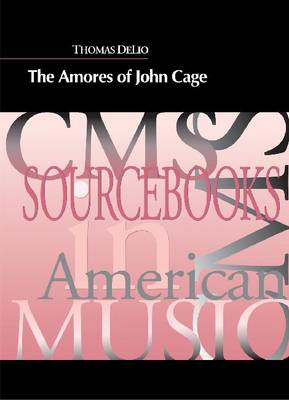CMS Sourcebooks in American Music
1 primary work
Book 7
Asserting that John Cage's innovations from the late 1930s and 1940s represent much more than a transitional phase in the American composer's sonic and philosophical journey, composer and theorist Thomas DeLio focuses his analytical energies on Amores, an economical four-movement quartet dating from 1943. This particular chamber work calls attention to Cage's dedicated expansion of musical resources by his creation of a repertory for percussion instrumentsas well as one for an instrument of his own invention, the prepared piano. In this study the piece is interpreted by Professor DeLio as a singular moment in music history: the reconciliation of what the author has identified as organic and inorganic approaches to composition central to the evolution of music during the twentieth century. In doing so, he surveys the relevant thoughts of prominent aestheticians and places this piece at a nexus of what somehave labeled Modernism and Postmodernism, but which DeLio understands as two branches of Modernism itself. Accompanying the text is a compact disc containing an especially memorable recorded performance of Amores, one first issuedin 1961 featuring Cage himself in the two movements conceived exclusively for the prepared piano.
